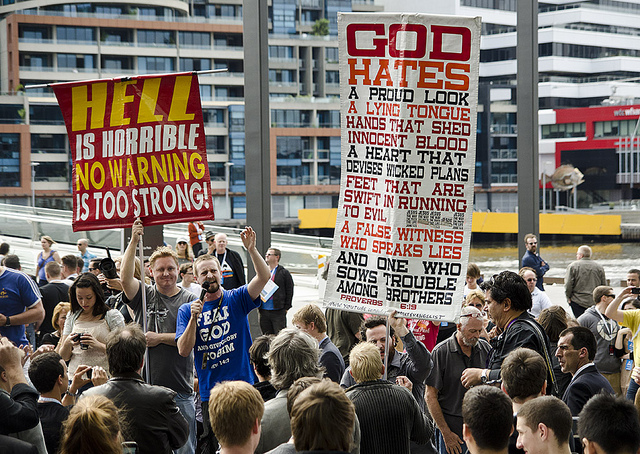Donald Trump Jr. tells young conservatives that following Jesus’ command to ‘turn the other cheek’ has ‘gotten us nothing’
Luke 6:27-36 New International Version
27 “But to you who are listening I say: Love your enemies, do good to those who hate you, 28 bless those who curse you, pray for those who mistreat you. 29 If someone slaps you on one cheek, turn to them the other also. If someone takes your coat, do not withhold your shirt from them. 30 Give to everyone who asks you, and if anyone takes what belongs to you, do not demand it back. 31 Do to others as you would have them do to you.
32 “If you love those who love you, what credit is that to you? Even sinners love those who love them. 33 And if you do good to those who are good to you, what credit is that to you? Even sinners do that. 34 And if you lend to those from whom you expect repayment, what credit is that to you? Even sinners lend to sinners, expecting to be repaid in full. 35 But love your enemies, do good to them, and lend to them without expecting to get anything back. Then your reward will be great, and you will be children of the Most High, because he is kind to the ungrateful and wicked. 36 Be merciful, just as your Father is merciful.
It isn't everyday that a 'Christian' Nationalist figure, and one of the most popular ones at that, flat out dismisses the teachings of Jesus as a plan that has "gotten us nothing." But on December 19th, 2021 at a Turning Point USA conference, Donald Trump Jr. did just that. The extended quotation is below:
“If we get together, they cannot cancel us all. OK? They won’t,” he said. “And this will be contrary to a lot of our beliefs because — I’d love not to have to participate in cancel culture. I’d love that it didn’t exist. But as long as it does, folks, we better be playing the same game. OK? We’ve been playing T-ball for half a century while they’re playing hardball and cheating. Right? We’ve turned the other cheek, and I understand, sort of, the biblical reference — I understand the mentality — but it’s gotten us nothing. OK? It’s gotten us nothing while we’ve ceded ground in every major institution in our country.”
And while the mockery of 'turn the other cheek' got some slight pushback, with baptistnews.com, churchleaders.com, and relevantmagazine.com all posting articles condemning the dismissal of Jesus' command to his disciples, there was remarkable little response from the likes of Franklin Graham, John MacArthur, Doug Wilson, James White, Robert Jeffress, or Thomas Ascol, all of whom have been quick over the years to condemn liberal derelictions of inerrancy (that is, not taking the Bible seriously as authoritative truth, when accurate these criticisms are warranted), but a Google search finds none of them saying a peep when a leader on 'our team' publicly declares that we've listened to Jesus for far too long.
{There is a separate conversation to be had about the premise: I don't believe that Jerry Falwell, the Moral Majority, or the Christian Coalition, for example, were actively 'turning the other cheek' in recent decades, rather they fought tooth and nail in the cultural and governmental arenas to which Donald Trump Jr. is referring.}
That's one of the things that 'Christian' Nationalism does to the Church. It creates excuses for when 'our team' defies scripture, even openly mocks Jesus. Why? Because we need those allies to win. It doesn't really matter if their faith is genuine, if their lives are moral or immoral, winning is everything.
Throughout the centuries the Church has failed to embrace Jesus' teaching on this topic of non-violence, non-resistance, and prayer for our enemies about as often and as thoroughly as any topic addressed by Jesus or covered extensively in the N.T. Our track record since Constantine's legalization of Christianity has been mixed, at best, far too often it has been awful.
And yet, now we're being told that we need to take the gloves off? We need bare-knuckle boxing because using a bit of restraint isn't good enough?
Nope. Not what Jesus told us to do, not what the Word of God commands, I don't care how important you are as a politician, or how many retweets you're getting these days, your authority falls massively short in comparison.



